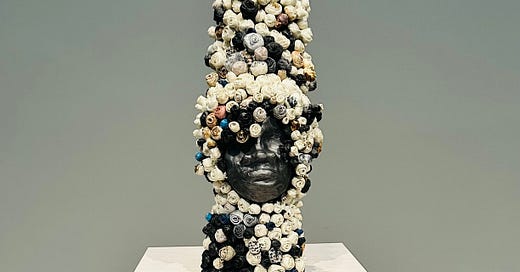I’ve recently had several conversations where people shared that they don’t feel comfortable discussing certain aspects of their lives because they fear the public won’t be accepting. Many feel shame around:
Being estranged from a family member
Losing a job
Struggling with infertility
Wanting to end a marriage or partnership
Some experiences—whether related to our bodies, relationships, or personal lives—can feel so painful that we don’t want to share them with anyone. We feel ashamed, but the way to release that shame is to stop carrying it alone. More often than not, when we open up, we’re surprised to learn just how many others are going through—or have gone through—something similar. But we can’t know that until we share.
I once heard a woman talk about how she had no friends growing up because her mother was an alcoholic, and she didn’t want anyone to know. She built her entire life around this secret, isolating herself from people who might have lightened the weight she was carrying. The sad truth is, many people have or have had alcoholic parents—she wasn’t alone in that.
We don’t have to share everything with everyone, but we can choose to open up to the people we trust instead of assuming they can’t handle the truth or will find it too heavy. I’ve had my share of difficult family relationships, and the other day, I was out to dinner with a friend who asked about my relationship with one of my parents. As I answered, I could tell she was surprised—she expected it to be a sore spot. But I’ve let go of that shame. I’ve released it.
Sometimes, we’re just not ready. We may not have the strength to talk about what’s troubling us or to deal with what others might say. I still have elders who tell me, “That’s your family—you just have to deal with it.” If I have any objection to that person’s mistreatment, that’s what I hear; but we all tolerate different things. We are allowed to draw those boundaries.
In her memoir The Tell, Amy Griffin describes how shame and fear led her to block out a significant part of her life. It wasn’t until she confronted it—talking through it, processing it—that she became more vulnerable and emotionally present in her relationships. We don’t always realize that holding onto shame creates a barrier between us and others, preventing them from truly knowing us. And it’s hard to build meaningful relationships with people when we don’t let them see who we really are.
Part of being known is sharing our stories—however difficult they may be.
Journal Prompt
What is a part of your story you’ve been holding back?
A Few Things That Caught My Attention This Week
Should Your Partner Really Be Your Best Friend?, by Catherine Pearson in The New York Times.
7 Writing Side Hustles That Pay My Rent As A Complete Beginner, on The Human Project Substack, for all the aspiring writers.





I loved your post. As a writer, I have been able to tell my truths through my characters which provided a layer of unburdening. As a teacher, I knew that my students were experiencing some of the issues I had grown up with: alcoholism, domestic violence and divorce. When I was open and honest with them about growing up with a father who was an alcoholic, well, the floodgates opened up as my students unburdened themselves with their own truths. Each time I presented them with text that presented yet another issue, such as incarceration or substance abuse, more students were able to make a connection and tell their truth as well. I have begun to open up more and tell my truths to others who are often surprised that I was carrying a lot of emotional baggage. I am a reader of Phil Stutz who writes that life is inherently characterized by pain, uncertainty, and constant work. Being able to unburden some of that pain by speaking our truths certainly helps. Thanks you for your post.
Hi Dr. Glover-Tawwab, it wasn't until reading this did I realize how much shame I carry. I labeled it guilt, resentment, or lying. My dad has been incarcerated for over twenty years. He was sentenced to life without the possibility of parole. Only my family and a few close friends knew this part of my life. My work colleagues would inquire about family as a normal part of getting to know me, but I would avoid it through distracting them or sometimes out right lying. What I thought was protection might actually be shame. I grew up in a time where I was told "what happens here, stays here". My dad had an addiction that lead him to committing a horrible crime. Yet, I carried the guilt and shame of it partly due to his manipulation (another story) and my on secret life. It's exhausting! Thank you for this article!